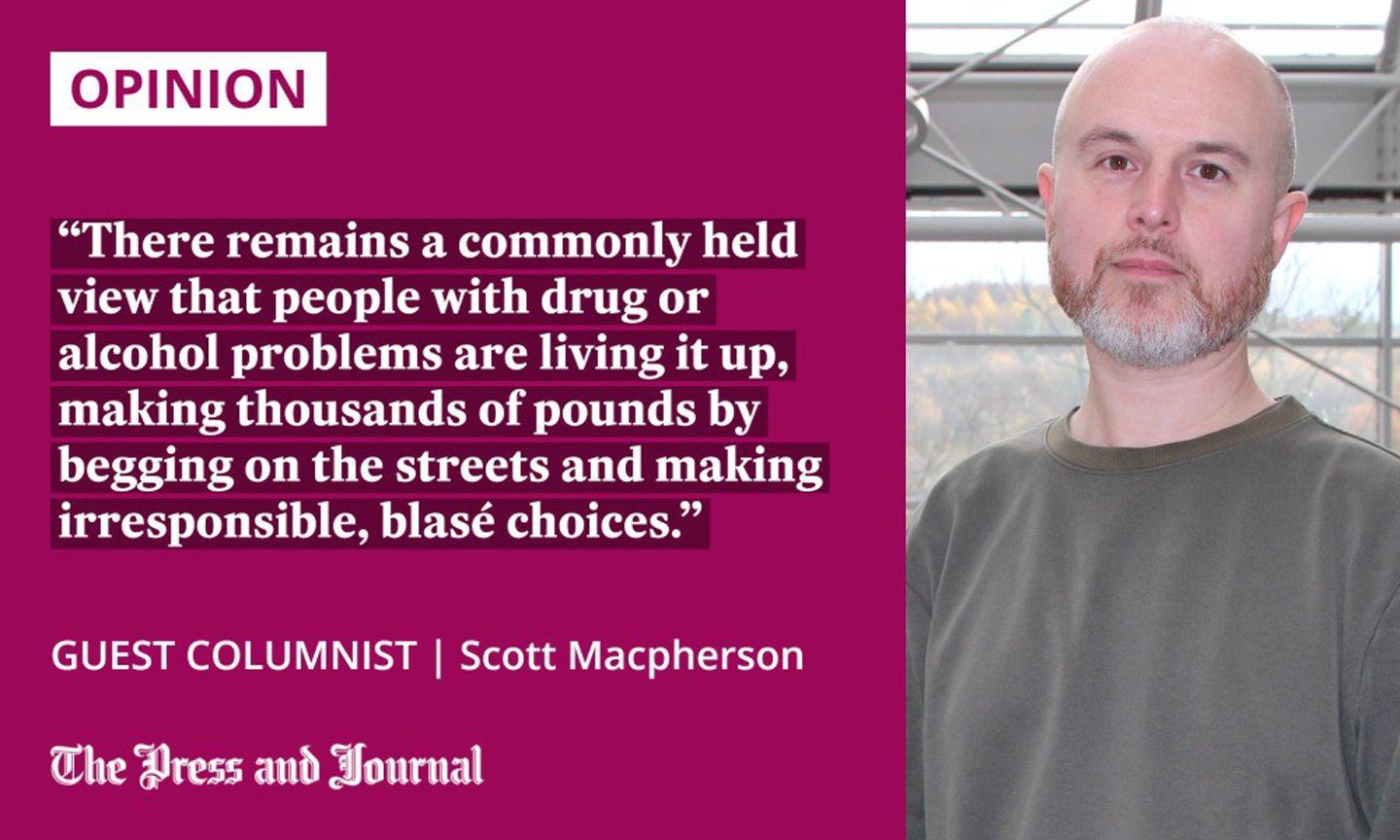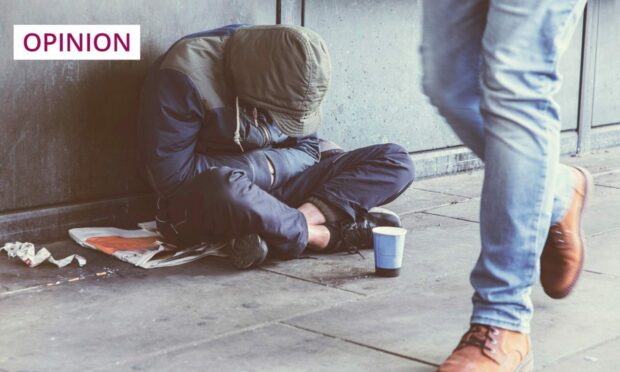During a difficult financial period, not enough has been said about the challenges facing people struggling with addiction, writes Scott Macpherson of RGU.
Times are tough for many of us, with rising prices causing added financial worry and mental distress.
It seems that, everywhere we look, there is an article about how to save money on heating or food this winter. Several of these have, rightly, highlighted the perilous situation of being faced with the choice between heating and eating. However, not enough has been said about the challenges faced by people struggling with drug and alcohol problems.
Working as a mental health nurse, I cared for a man who regularly begged for money in the city centre – to protect his real identity, let’s call him Jim. When Jim got a little money, he would get together with others in a similar situation to buy drugs or alcohol, which they would use as a temporary respite from their desperate situations.
Jim was roofless, and slept rough on the streets of Aberdeen, wearing all the clothes he owned to try to stay warm. During one of our appointments, I asked him what he had eaten recently. After some prompting, he shared that, in the last 48 hours, all he had eaten was half of a discarded white pudding he had found in a bin. This was not a one-off low point.

It would be easy to write off people like Jim, with drug or alcohol-related problems, as having made poor life choices, and believe that their issues are self-inflicted, but this view does not hold up to scrutiny.
I’ve been working in and around the substance abuse field for over 20 years, and evidence shows that people from deprived communities in Scotland are far more likely to develop drug or alcohol problems than those from more affluent backgrounds. They are also more than five times as likely to die an alcohol-related death, and 15 times more likely to die from a drug related-death.
We also know that they are more likely to have experienced multiple traumas and other mental health problems, and that there is lots of evidence to suggest links between these issues.
Set judgment aside and connect with another person
It would be condescending to suggest that this link between poverty, trauma, and problems with mental health and substance use is anything other than a systemic issue that needs to be addressed by tackling wider social and economic inequalities.
Strangely, though, there remains a commonly held view that people with drug or alcohol problems are living it up, making thousands of pounds by begging on the streets and making irresponsible, blasé choices to prioritise drug or alcohol use over proper dietary intake, heating, or other fundamental needs.
If there is one thing we can do to help, it is to challenge this notion, both in ourselves and in others. Rather than peddling a tired, judgmental narrative, we can instead choose the path of empathic understanding for fellow humans who find themselves experiencing difficulties.
Responding with empathy can be hard, because it requires us to set aside our judgments and try to connect with the feelings the other person (or people) may be experiencing. But, this exercise is ultimately rewarding, as, while judgment fuels division and conflict, empathy leads to connection and understanding.
Scott Macpherson is a lecturer in mental health nursing at Robert Gordon University


Conversation